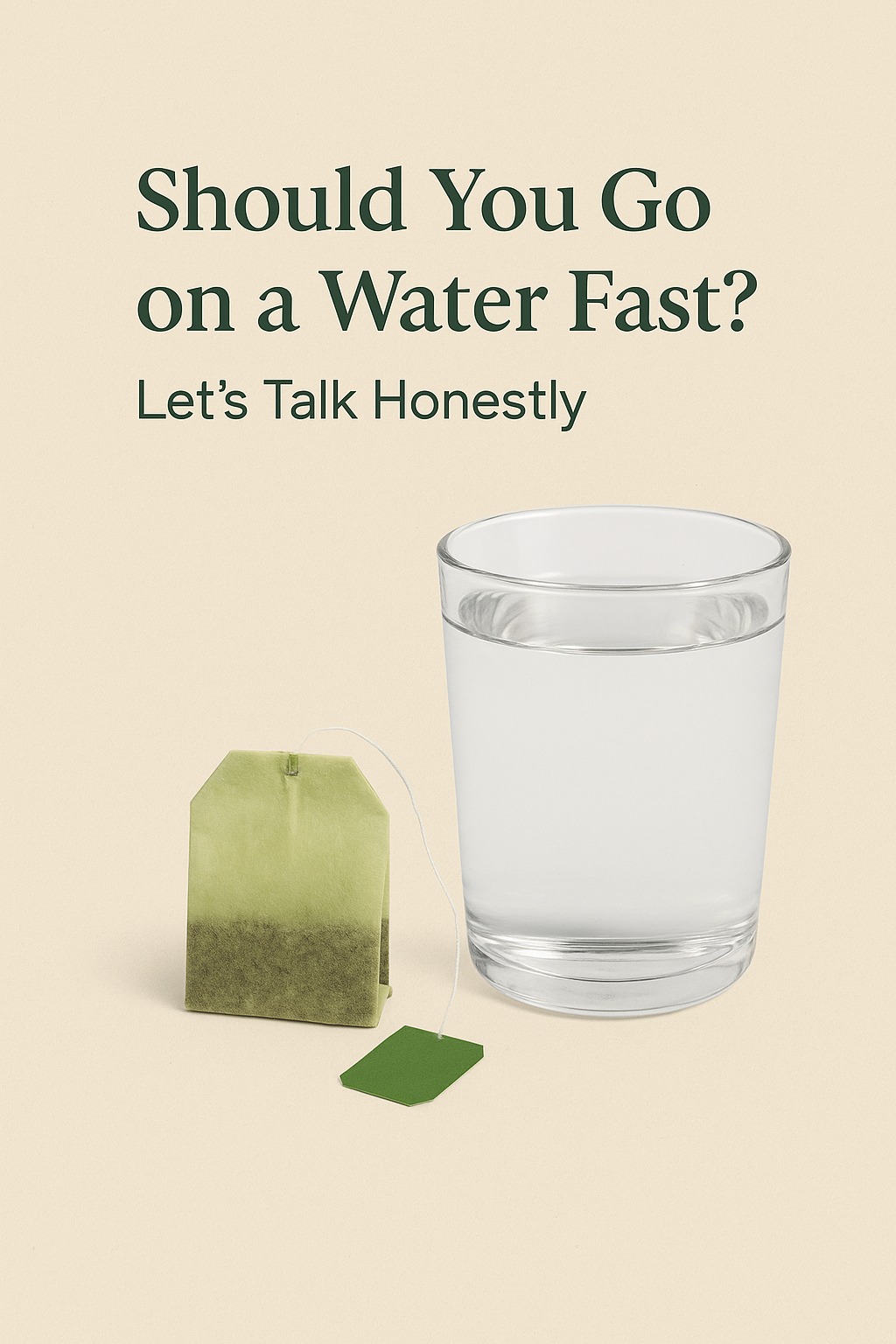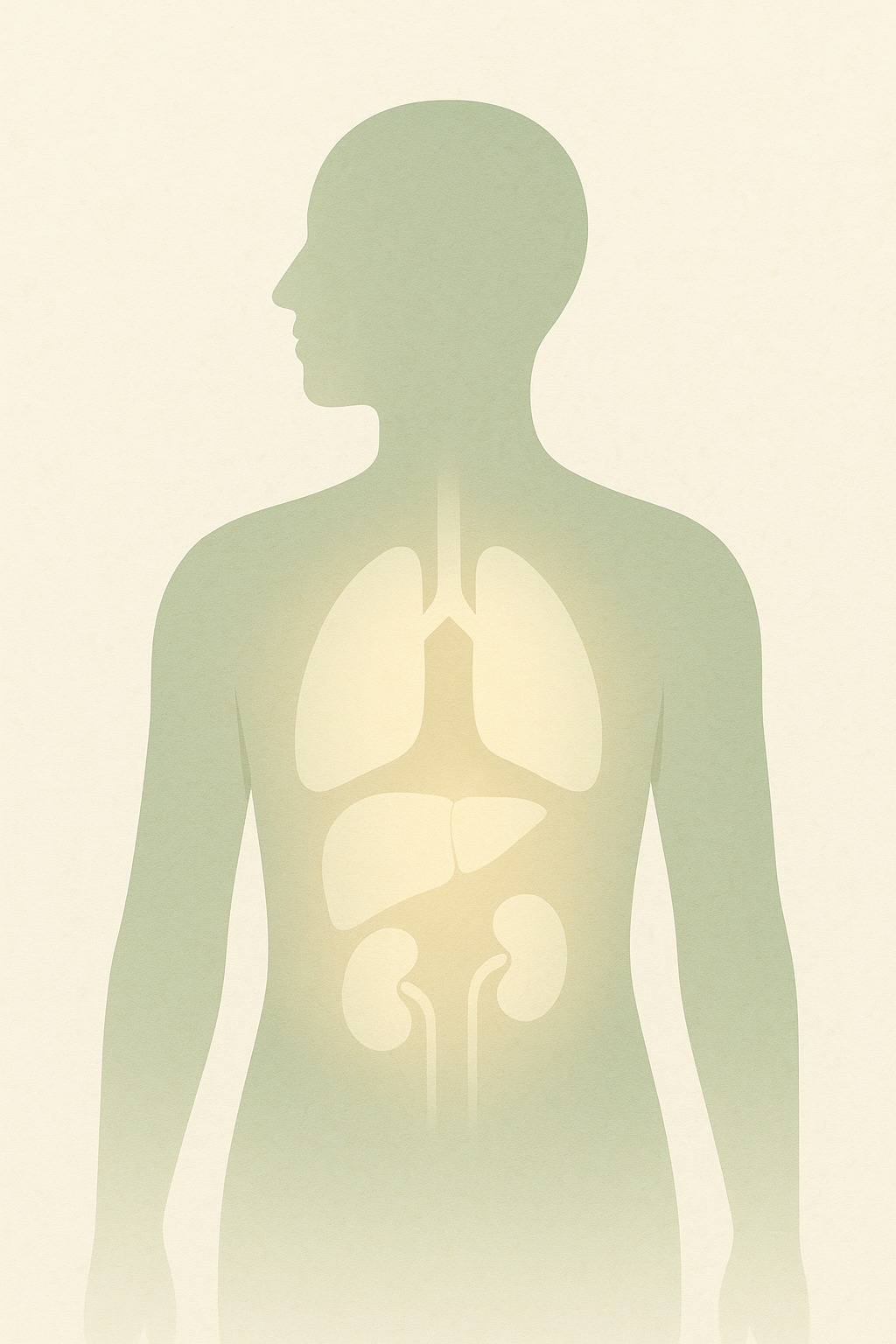Every few months, a new wellness trend sweeps through social media; green juice cleanses, detox teas, ice baths, and now, water fasting. The idea sounds simple: stop eating, drink only water, and let your body “reset.”
Should you go on a water fast? They say it sharpens focus, clears the skin, resets digestion, and helps the body detox naturally. But is it truly the miracle cleanse it’s hyped up to be? Or is it one of those trends that sounds healthier than it really is?
Let’s unpack what happens when you go on a water fast and whether it’s something you should actually try.
What Exactly Is a Water Fast?
A water fast is exactly what it sounds- No food and calorie-containing drinks, consuming only water for a set period, usually 24–72 hours.
Some people do it for spiritual reasons, while others do it for physical health: to “detoxify,” lose weight, or reset their eating habits.
In theory, fasting gives your body a break from constant digestion so it can focus on repair and renewal. But as simple as it sounds, water fasting affects your body on multiple levels, especially your metabolism and nutrient balance.
What Happens in the Body During a Water Fast
When you stop eating, your body quickly switches gears. Normally, your body uses glucose (from food) for energy. During fasting, once your glucose runs out, your body starts breaking down stored fat for fuel. This process, called ketosis, produces molecules known as ketones, an alternate energy source.
Around the same time, another process called autophagy begins. Autophagy is like your body’s internal cleaning crew, it clears out damaged cells and recycles them. This is one of the reasons fasting has been linked to longevity and improved cellular health.
Sounds impressive, right? But before you rush into a water fast, there’s more to consider.
Potential Benefits of Water Fasting
There’s no denying that short-term fasting can bring some benefits, especially when done safely and intentionally.
-
Digestive Reset – When you give your digestive system a break, it can sometimes help reduce bloating and inflammation.
-
Improved Mental Clarity – Some people report sharper focus and better mood after the initial fatigue wears off.
-
Natural Detox Support – Fasting may help your body redirect energy toward internal cleanup processes, especially when combined with hydration.
-
Quick Weight Drop – You may lose a few pounds quickly, though most of it is water weight that returns when you start eating again.
The Risks You Shouldn’t Ignore
While fasting can feel empowering, it’s not risk-free. A water fast deprives your body of essential nutrients; proteins, vitamins, and minerals that keep your organs, muscles, and immune system functioning properly.
Common side effects include:
-
Dizziness and fatigue (your blood sugar may drop too low)
-
Headaches and irritability
-
Muscle loss from protein breakdown
-
Electrolyte imbalance, which can be dangerous if prolonged
-
Slowed metabolism—your body adapts by burning fewer calories
Longer fasts can even backfire, leading to rebound overeating, digestive distress, and hormonal imbalances.
And here’s the truth: your body already has a built-in detox system your liver, kidneys, and lymphatic system are constantly working to filter out waste and toxins. You don’t need to starve yourself to “cleanse” them; you need to support them.
Better Alternatives for a Healthy Reset
If you’re craving that feeling of renewal without going to extremes, there are safer and more sustainable ways to support your body:
-
Try Intermittent Fasting – Instead of total deprivation, you can try a gentler rhythm like 16:8 (fast for 16 hours, eat within 8). This supports metabolism and gives your body rest without the shock of a full fast.
-
Hydrate With Intention – Water is great, but hydration can be enhanced with herbs that support detoxification. Herbal blends like Lungs & Kidney Tea can help flush toxins, support your organs, and keep your system balanced, all without starving your body.
-
Focus on Whole Foods – Nourish your body with fresh fruits, vegetables, whole grains, and lean proteins. Your liver and kidneys love fiber and antioxidants; these are your true detox allies.
-
Prioritize Sleep and Movement – You can’t detox if you’re constantly stressed or sleep-deprived. Quality rest, deep breathing, and light movement (like walking or yoga) help your body naturally eliminate waste.
So, Should You Go on a Water Fast?
The answer depends on your body, your mindset, and your health status. For most people, especially those new to fasting, a complete water fast is too extreme and unnecessary.
If you’re looking to heal, cleanse, or feel lighter, focus on balance, not deprivation. Your body thrives when it’s nourished, hydrated, and supported, not when it’s starved.
A gentle detox routine, one that includes clean eating, herbal support, and hydration, is far more sustainable and safer for your long-term health.
So, before you decide to go days without food, ask yourself:
“Am I doing this to heal my body, or to punish it?”
Choose the path of nourishment. Support your body. Drink water, yes, but also give it the herbs, minerals, and rest it needs to truly thrive. 🌿


